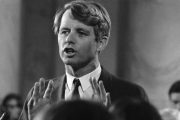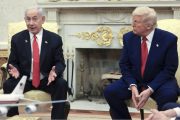
Two major newspapers have refused to endorse Vice President Kamala Harris for the White House.
The Washington Post and the Los Angeles Times are sitting out this election.
The bruising blow to Harris’ campaign comes after two failed interviews, the latest being the disastrous CNN town hall in battleground Pennsylvania.
Post Publisher: Returning to Time-honored Tradition
In a column for the Post, publisher William Lewis explained that the newspaper has abandoned presidential endorsements.
“The Washington Post will not be making an endorsement of a presidential candidate in this election,” he wrote. “Nor in any future presidential election. We are returning to our roots of not endorsing presidential candidates.”
Lewis reprised some lines from an editorial in 1960, when the Post did not endorse Democrat John F. Kennedy or Republican Richard M. Nixon:
The Washington Post has not “endorsed” either candidate in the presidential campaign. That is in our tradition and accords with our action in five of the last six elections. The unusual circumstances of the 1952 election led us to make an exception when we endorsed General Eisenhower prior to the nominating conventions and reiterated our endorsement during the campaign. In the light of hindsight we retain the view that the arguments for his nomination and election were compelling. But hindsight also has convinced us that it might have been wiser for an independent newspaper in the Nation’s Capital to have avoided formal endorsement.
Lewis said another note in the editorial will “resonate with readers today”:
We nevertheless adhere to our tradition of non-endorsement in this presidential election. We have said and will continue to say, as reasonably and candidly as we know how, what we believe about the emerging issues of the campaign. We have sought to arrive at our opinions as fairly as possible, with the guidance of our own principles of independence but free of commitment to any party or candidate.
In 1972, the newspaper asked what a newspaper’s role in an election should be. The answer was that, “we are, as our masthead proclaims, an independent newspaper.” The newspaper stuck to the tradition, it explained, and had “no reason” to change.
In 1976, Lewis explained, the newspaper endorsed Jimmy Carter for “understandable reasons.”
Apparently, the newspaper regretted that decision. “We had it right before that,” Lewis wrote, “and this is what we are going back to.”
But not before the newspaper endorsed every Democrat who ran for president — except Michael Dukakis in 1988 — from Carter through Barack Hussein Obama.
We recognize that this will be read in a range of ways, including as a tacit endorsement of one candidate, or as a condemnation of another, or as an abdication of responsibility. That is inevitable. We don’t see it that way. We see it as consistent with the values The Post has always stood for and what we hope for in a leader: character and courage in service to the American ethic, veneration for the rule of law, and respect for human freedom in all its aspects. We also see it as a statement in support of our readers’ ability to make up their own minds on this, the most consequential of American decisions — whom to vote for as the next president.
National Public Radio reported that Posties are boiling mad.
“Colleagues were said to be ‘shocked’ and uniformly negative,” NPR reported, and ex-executive editor Martin Baron called the decision cowardly.
“This is cowardice, a moment of darkness that will leave democracy as a casualty,” Baron told NPR. “Donald Trump will celebrate this as an invitation to further intimidate The Post’s owner, Jeff Bezos (and other media owners). History will mark a disturbing chapter of spinelessness at an institution famed for courage.”
L.A. Times Decision Sparks Fury
The Times did not publish a column explaining its decision not to endorse, and simply left the presidential contest out of its usual endorsement editorial.
On October 11, the hate-Trump editorial board received the news from owner Patrick Soon-Shiong, a health-care magnate who invented a cancer drug and bought the newspaper in 2018.
Again, rage ensued.
The editorial editor, Mariel Garza, resigned in a snit, the Columbia Journalism Review (CJR) reported. Two other editors, Robert Greene and Karin Klein, also quit.
“I am resigning because I want to make it clear that I am not okay with us being silent,” Garza told CJR. “In dangerous times, honest people need to stand up. This is how I’m standing up.”
In an unhinged resignation letter, Garza wrote that refusing to endorse Harris undermines the newspaper’s “integrity.”
“It makes us look craven and hypocritical, maybe even a bit sexist and racist,” she wrote:
How could we spend eight years railing against Trump and the danger his leadership poses to the country and then fail to endorse the perfectly decent Democrat challenger — who we previously endorsed for the US Senate?
The non-endorsement undermines the integrity of the editorial board and every single endorsement we make, down to school board races. People will justifiably wonder if each endorsement was a decision made by a group of journalists after extensive research and discussion, or through decree by the owner.
One possible answer to Garza’s question is that Soon-Shiong thinks Harris might be as dangerous as Trump.
“In an email to unionized staff on Wednesday, the LA Times union said it had sent a letter to [Times executive editor Terry] Tang and Soon-Shiong seeking an explanation for the lack of endorsement, but had not received one,” news platform Semafor reported:
The union said it was “concerned about our owner’s decision to block an endorsement in the presidential race.”
“We believe the company owes the staff an explanation about why this decision was made after years of endorsements in general elections,” the union wrote in the note.
In fact, owner Soon-Shiong owes them no explanation, but he did explain on X why there was no endorsement: It was the editorial board’s decision.
“Let me clarify how this decision came about,” Soon-Shiong wrote:
The Editorial Board was provided the opportunity to draft a factual analysis of all the POSITIVE AND NEGATIVE policies by EACH candidate during their tenures at the White House, and how these policies affected the nation. In addition, the Board was asked to provide their understanding of the policies and plans enunciated by the candidates during this campaign and its potential effect on the nation in the next four years. In this way, with this clear and non-partisan information side-by-side, our readers could decide who would be worthy of being President for the next four years.
Instead of adopting this path as suggested, the Editorial Board chose to remain silent and I accepted their decision.
Translation: Garza and her editors wanted to eviscerate Trump and sing hosannas for Harris. Soon-Shiong wanted a neutral approach, something no hate-Trump fanatic could accept. Then the disgruntled editors tried to pin the blame on Soon-Shiong. So much for “integrity.”
Yet the refusal to endorse Harris might well have unintended consequences. The newspapers told millions of Americans that she simply isn’t presidential timber.




